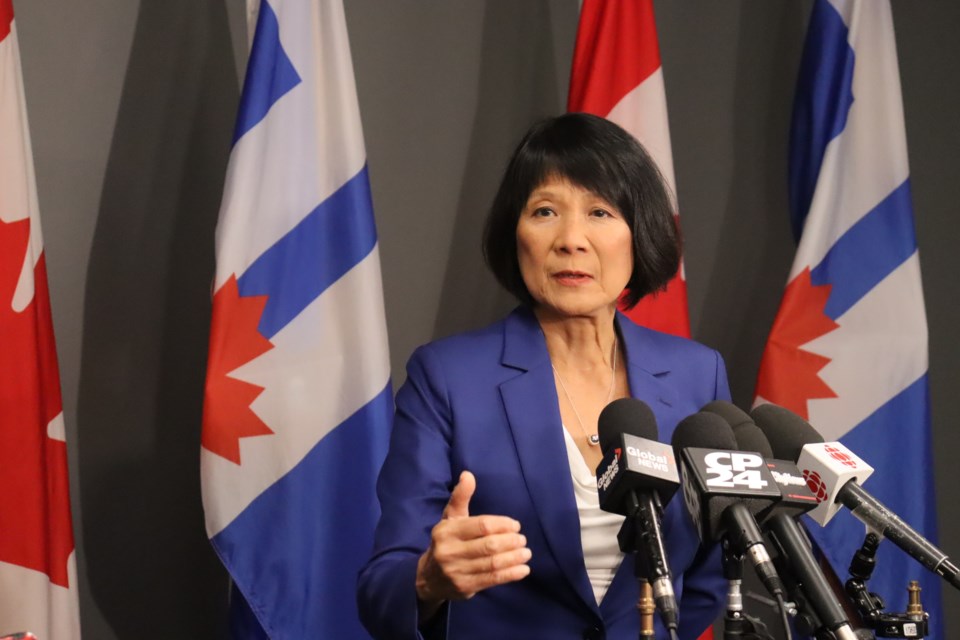Toronto Mayor Olivia Chow is preparing to bring forward new measures to strengthen the city’s speed camera system just as Premier Doug Ford is promising to eliminate them altogether. Chow’s motion, which will go before a city hall committee on Friday, calls for clearer, larger signage to notify drivers of camera locations and a rule limiting how many tickets a motorist can receive before their first violation notice arrives in the mail. The changes come after some residents were hit with dozens of backlogged fines for offences they didn’t know they had committed.
Ford, however, is moving in the opposite direction. At a press conference on Thursday, the premier announced that his government will introduce legislation this fall to ban automated speed cameras across Ontario. He praised mayors who have resisted or removed cameras, accusing others of using them to “make a quick buck.” Ford dismissed suggestions that the move condones vandalism against cameras in Toronto, instead unveiling a provincial fund that will pay for physical traffic-calming measures such as speed bumps, roundabouts, raised crosswalks and curb extensions. These, he argued, are more effective at slowing cars than cameras, which he claimed simply churn out “hundreds of thousands of tickets” without actually changing driver behaviour.
Chow pushed back, arguing that Ford’s plan is both costly and impractical. She noted that traffic mazes and road-narrowing designs don’t work on arterial roads and are deeply unpopular on residential streets. Building them takes time and significant investment, she said, whereas cameras are already saving lives and generating funds that go directly into road safety initiatives. “If you break the law and speed illegally, you pay so that other people can be safe,” Chow said, countering Ford’s suggestion that cameras are a tax grab.
Support for Chow’s position has come from the Ontario Association of Chiefs of Police, which credits cameras with reducing speeding and freeing up officers for other priorities. Her office also highlighted a SickKids study showing that cameras cut speeding by nearly half and significantly reduce extreme speeding.
Chow’s motion goes further than signage and ticket limits. She wants households near camera locations to be notified that the province may soon remove them, with details on how to contact their local MPP. She also wants MPPs themselves to receive information about the schools, playgrounds and seniors’ residences in proximity to camera zones, alongside pedestrian injury statistics. By doing so, Chow hopes to build public pressure on Queen’s Park to maintain the program.
The debate now sets up a direct confrontation between city hall and the provincial government. While Ford insists that cameras don’t slow drivers down, Chow maintains they are a vital tool in protecting Toronto’s most vulnerable road users—and she’s betting residents will agree.

